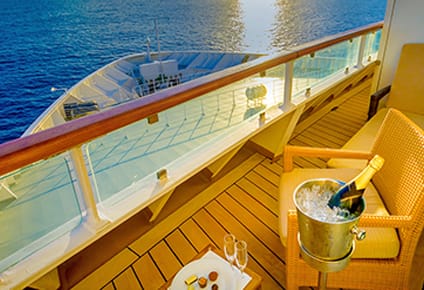
You've found the right place to learn the French itineraire. This article will demonstrate how to use itineraire in French. You can now start your journey in confidence by learning how to French say itinerary. Here are some useful phrases about itinerary.
Meaning of itinerary in French
What is the French meaning for itinerary? The answer is a mix. Itineraries refer to routes taken by a court and are usually accompanied by some kind of destination or activity. Someone who speaks more than one tongue is considered to be more engaged in their lives. Additionally, being able to speak several languages will give you more social and global opportunities. But, in addition to all these benefits, learning another language can improve your communication skills.

Itineraire is the French word for itinerary. French language has multiple meanings of the word itinerary. French language has itineraire which is the same thing. Let's examine both of these meanings. Itineraire is "passing between one place and another."
How to say itineraire in French
French speakers of itinerary will be able to pronounce it. Itineraire is the English equivalent of itinerary. It is possible to learn this word in two ways. You can first read the meaning of itinerary French. You might be wondering if the meaning of itinerary is the same as the English word. Read on to find out how to pronounce it in French. These are some helpful tips to learn the French word itinerary.
It is the Greek word for "route." It describes the routes taken in royal courts. In French, the route a king, queen, or other royal traveler takes is often called an itinerary. An itinerary for a Pope would, for example, include stops in Europe or Turkey. An itinerary describes the path taken by the court to get there. For travelers, it's a way to describe the route that travels from one place to another.
How to use itineraire within a sentence
English grammar is confusing. These are the tips that will prevent you from making this common mistake. You should keep in mind that the dictionary uses examples from corpora, as well the internet. These examples may not represent the views or opinions of Cambridge University Press editors. These examples do not necessarily reflect the correct use of itinerary in French sentences.

Examples of how to use itineraire in sentences
You can find examples of sentences that use the word itinerary. This article will teach you how to use this tricky word. It is used to describe a route or journey. You can use it to indicate what you are planning for the day. But the word itinerary is more precise. It's most commonly used to describe an itinerary, such a business trip.
FAQ
What should I pack for a vacation trip?
You must know what you want from your holiday. You don't just need to pack clothes. Also, think about where and how long your stay there.
The first thing you need to do is think about what types of activities are most appealing to you. For example, if you are going to an exotic destination, then you may want to try scuba diving. If you plan on staying longer, you may want to attend local festivals.
Tell your loved ones if there are any health concerns so they can plan for you.
Where should I store my luggage
There are many choices. The most popular option is to use lockers in airports. These are normally located near the security area. These lockers cost $5-10 per day depending on their size.
A storage unit can be rented. These units can be found in shopping centers and hotels. Some places offer discounts if multiple units are rented together. Prices can vary.
You can also hire a porter. A porter will take your luggage from the carousel and bring it to your room. You pay a small fee each time he helps you.
Which countries are known for their best food?
Different countries have different cuisines. So it's hard to say which countries have the best food.
But we can tell you which countries have the most delicious food!
TripAdvisor users ranked these three countries as the top three:
-
Italy - Italy was voted #1 by TripAdvisor users because of its incredible food.
-
France - France came in second place because of its rich culture, cuisine and history.
-
Spain - Spain came third because of its great weather and beautiful beaches.
These are the things that you must remember when traveling.
When traveling, you will often find yourself in situations without the ability to make informed decisions. So be prepared to improvise.
You could be stuck there for hours, days and even weeks. If you plan ahead you can have food and water, shelter, and a place for sleep. But, if not, you might have the need to improvise.
In these cases, you'll probably have to rely on what you know how to do best. This means that you will need to make quick decisions based on your intuition and experience.
Sometimes you just can't make a choice. For example, you could be stranded in an area without cell phone service, running out of gas, or having been robbed. You will need to be flexible to any situation that presents itself.
The key is to keep calm, stay focused and act decisively. Don't panic. Instead, keep your eyes on the things you can control.
If you find yourself lost in the woods you can choose which way to go. You can also eat berries and mushrooms if you feel hungry. You can drink rainwater, or melt snow if your thirst is great.
Or if you're tired, you can rest. You can layer up if you are cold. If you get wet, you can put on clothes. You'll feel happier if you remain positive, no matter what your decision.
What amount of luggage should I bring?
The length of your trip determines how much luggage you should take. Hand baggage is usually limited to 20 kg if you travel by plane. You will need more space if you travel by train or bus.
At the airport, you will receive a form that you need to complete with your details. This will include information like the weight of your bag and whether you need assistance in checking them in.
Always check your luggage before you leave the house. You might find yourself stuck waiting in line for hours as everyone else inspects their luggage.
Travel light as you never know what may happen. You won't be able to use your bag if it gets lost.
Do you ever worry about forgetting something when you travel?
Yes, I often forget stuff. This is more common when I go on a short trip. Fortunately, I always have everything, so I never run short of things.
My passport is one example. When I purchase tickets, I make sure I have enough cash.
Also, my phone charger is always with I. A small bag is also handy for storing other items.
Statistics
- Pack sweaters, jackets, and underwear in reusable compression bags creating up to 75% more space in your luggage. (wikihow.com)
- According to Maori legends, this park holds 14 fjords that were all carved by a giant stonemason with an adze. (busytourist.com)
- Alcoholic beverages with more than 24% but not more than 70% alcohol are limited in checked bags to 5 liters (1.3 gallons) per passenger and must be in unopened retail packaging. (tsa.gov)
- Between the ages of 11 and 13, kids, or tweens, will likely want some autonomy but also need boundaries. (travelandleisure.com)
- Case in point: the private island of Ilha Caldeira, less than seven miles off the coast as part of the Primeiras and Segundas Archipelago, is located within the marine-protected area with 20 percent of the country's intact living coral. (travelandleisure.com)
External Links
How To
What are your top travel tips?
Although traveling can be an exciting experience, there are many things you need to avoid to ensure a safe trip.
Here are some simple tips to help you plan your next holiday.
-
Get your bookings in early. Book early to get lower prices. You can also save money by not taking advantage of last-minute deals offered to you by hotels or airlines.
-
Stay-at-budget accommodations. Cheap hotels offer better value for money. They are located near shopping and public transportation.
-
Don't overpack. Don't overpack. Keep room for souvenirs. Take clothes that fit well.
-
Use common sense. Be careful if you're on your own. Avoid unsavory neighborhoods and areas where crime is rampant.
-
You can take precautions to prevent theft. Keep valuables out of sight. When you swim, don't leave valuables unattended.
-
Pay attention to cash. Thieves often target tourists in foreign cities. Keep your money out of view and use ATMs inside banks or guarded facilities.
-
You should know where you are. You should know how to use public transport before you book a hotel. You can find out more about popular attractions, restaurants, or other sights.
-
Make sure you are safe. Learn about the culture, customs, laws and traditions of the area before you arrive.
-
Have fun! Enjoy yourself, no matter what happens. It's worth it.